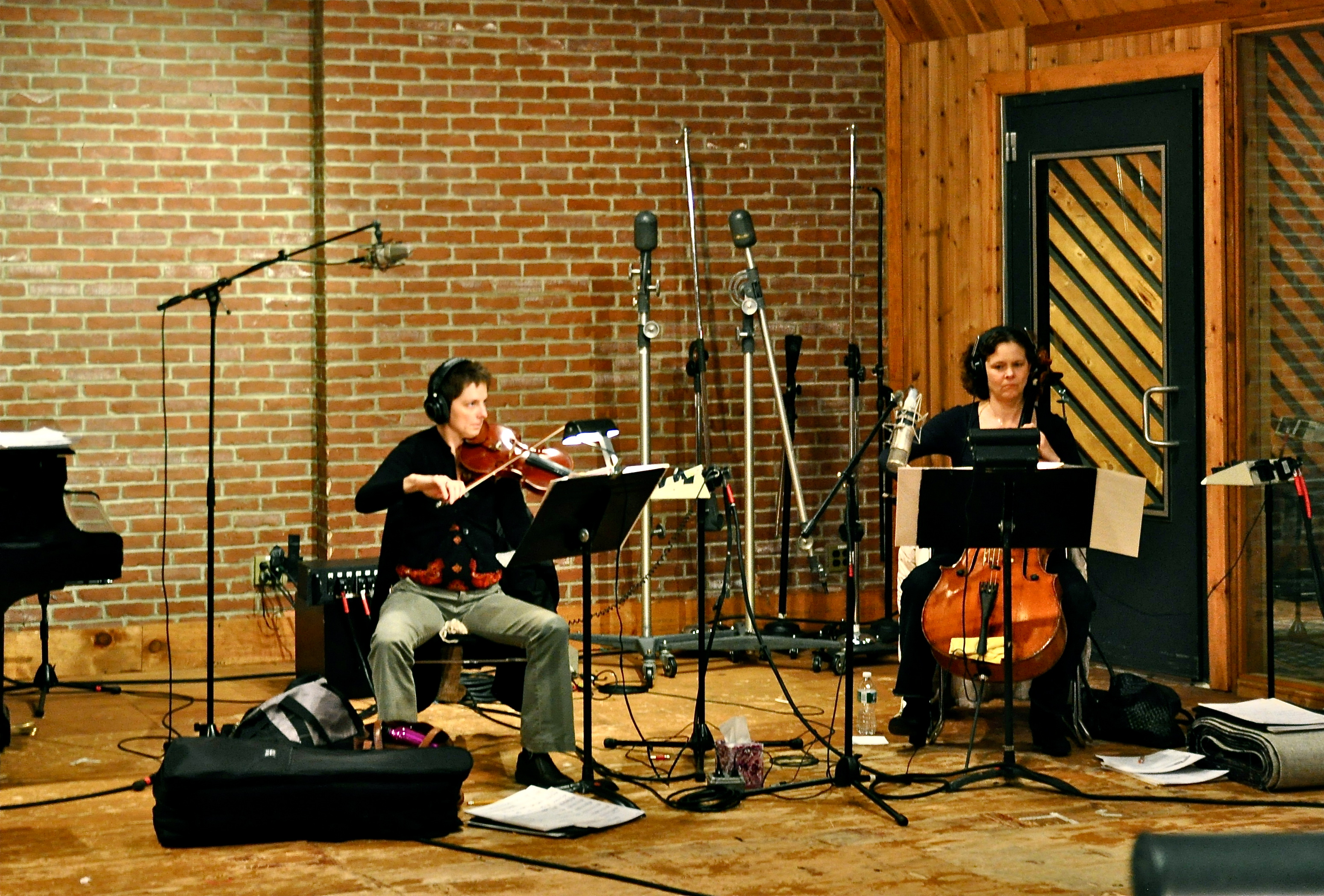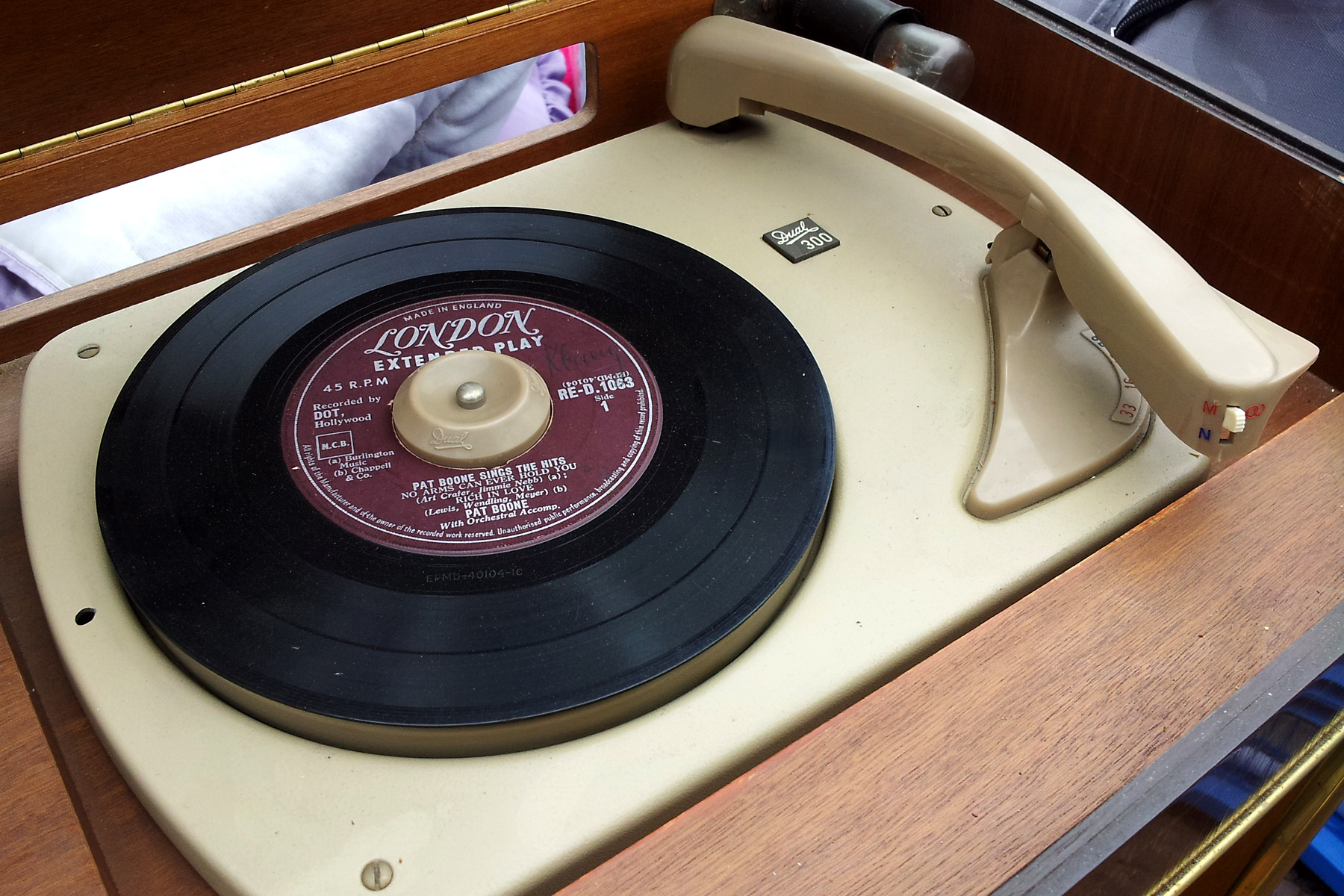|
Puchito Records
Puchito Records was Cuba's second independent record label. It was founded in 1954 during the mambo and cha-cha-chá explosion. Many of its recordings, produced by its founder Jesús Gorís, became instant hits. History Early career of Puchito's founder The founder, Jesús Gorís ''(né'' Jesús Ramon Francisco Gorís Ballas; 12 April 1921 Havana, Cuba – 16 Aug 2006 Miami, Florida) had been a representative of RCA Victor, selling records from a separate counter at his father's hardware store, La Estrella. Eventually, the store became known as Gorís Shop. In 1952, Gorís invested in a single, "Guantanamera", composed by Joseíto Fernández, which did well in jukeboxes. Gorís and two partners, Messrs. Alfredo Beltrán and Oliva, originally wanted to launch a series of children's records, so they chose the name Puchito, which, in this context, means "youngest child." In 1954, Gorís and his two partners produced an LP of Olga Guillot singing with The Castro Brothers Or ... [...More Info...] [...Related Items...] OR: [Wikipedia] [Google] [Baidu] |
Warner Music Group
Warner Music Group Corp., commonly abbreviated as WMG, is an American Multinational corporation, multinational entertainment and record label Conglomerate (company), conglomerate headquartered in New York City. It is one of the "Record label#Major labels, big three" recording companies and the third-largest in the global music industry, after Universal Music Group (UMG) and Sony Music Entertainment (SME). Formerly owned by Time Warner (later called WarnerMedia and its successor is Warner Bros. Discovery), the company sold WMG in 2004 to a group of private investors led by Edgar Bronfman Jr., in a move to alleviate Time Warner's debt load related to its merger with AOL. WMG was publicly traded on the New York Stock Exchange from 2005 until 2011, when it announced its privatization and sale to Access Industries. It later had its second IPO on Nasdaq in 2020, once again becoming a public company. As of 2025, Access Industries remains the company's largest shareholder, owning 72% ... [...More Info...] [...Related Items...] OR: [Wikipedia] [Google] [Baidu] |
Miguelito Cuní
Miguelito may refer to: *Miguelito (singer) (born 1999), Puerto Rican reggaeton singer *Miguelito (footballer, born 1981), Portuguese football wingback *Miguelito (footballer, born March 1990), Portuguese football midfielder *Miguelito (footballer, born December 1990) Miguel Muñiz Fernández (born 1 December 1990), commonly known as Miguelito, is a Spanish professional footballer who plays for Atlético Porcuna CF as an attacking midfielder. Club career Born in Huelva, Miguelito spent his first three seas ..., Spanish football attacking midfielder * Miguelitos, a type of cake {{hndis ... [...More Info...] [...Related Items...] OR: [Wikipedia] [Google] [Baidu] |
Conjunto Chappottín
Conjunto Chappottín, also known as Chappottín y sus Estrellas, is a Cuban son conjunto from Havana. It was founded in 1950 by trumpeter Félix Chappottín, pianist Lilí Martínez, singer Miguelito Cuní and other members of Arsenio Rodríguez's conjunto, which was partially disbanded after his departure to the US. Currently, the group is directed by Jesús Ángel Chappottín Coto, the grandson of Félix Chappottín. History The founding of the band dates back to the 1940s. Its founder Arsenio Rodríguez was one of the country's most renowned band leaders with major influences on the Latin jazz and Salsa music of the next decades. With his Conjunto he was the first to add reed and brass instruments to a Latin band at that time. When Arsenio Rodríguez left Cuba in 1950 to undergo an ophthalmological intervention in New York to treat his eye disease, he handed the musical direction over to his first trumpet player, Félix Chappottín. The band was renamed Félix Chappottín y su ... [...More Info...] [...Related Items...] OR: [Wikipedia] [Google] [Baidu] |
Sam Coslow
Sam Coslow (December 27, 1902 – April 2, 1982) was an American songwriter, singer, film producer, publisher and market analyst. Coslow was born in New York City. He began writing songs as a teenager. He contributed songs to Broadway revues, formed the music publishing company Spier and Coslow with Larry Spier and made a number of recordings as a performer. With the explosion of film musicals in the late 1920s, Hollywood attracted a number of ambitious young songwriters, and Coslow joined them in 1929. Coslow and his partner Larry Spier sold their publishing business to Paramount Pictures and Coslow became a Paramount songwriter. One of his first assignments for the studio was the score for the 1930 film '' The Virtuous Sin''. He formed a successful partnership with composer Arthur Johnston and together they provided the scores for a number of films including Bing Crosby vehicles. Coslow became a film producer in the 1940s and won the Academy Award for Best Short Film for h ... [...More Info...] [...Related Items...] OR: [Wikipedia] [Google] [Baidu] |
Arthur Johnston (composer)
Arthur James Johnston (January 10, 1898 – May 1, 1954) was an American composer, conductor, pianist and arranger. Life and career Born in New York City, he began playing piano in movie houses, and went to work for Fred Fisher's music publishing company at the age of 16. He met, and was soon hired by, Irving Berlin, becoming Berlin's personal arrangement, arranger, and director of early ''Music Box Revues''. His first hit song was "Mandy Make Up Your Mind", co-written with George W. Meyer, Roy Turk and Grant Clarke for Florence Mills to sing in the show ''Dixie to Broadway''. Biography by Jason Ankeny, ''Allmusic.com'' Retrieved 12 January 2021 In 1929, he moved to Hollywood, Los Angeles, Hollywood, where he orchestrated and arranged the music for films including ''Puttin' On the ... [...More Info...] [...Related Items...] OR: [Wikipedia] [Google] [Baidu] |
Cocktails For Two
"Cocktails for Two" is a song from the Big Band era, written by Arthur Johnston and Sam Coslow. The song debuted in the movie ''Murder at the Vanities'' (1934), where it was introduced by the Danish singer and actor Carl Brisson. Duke Ellington's version of the song was recorded in 1934 and was inducted into the Grammy Hall of Fame in 2007. The song alludes to Repeal, the ending of Prohibition in the United States. The introduction begins with: Oh what delight to Be given the right to Be carefree and gay once again. No longer slinking, Respectably drinking Like civilized ladies and men. The song was written in 1934, and the 21st Amendment, which ended Prohibition, was ratified in December of the previous year. Renditions Ellington's recording in 1934 of "Cocktails for Two" was by far the most popular of the year, and his second biggest hit of the year behind "Solitude" later on. Other popular version were also made by the orchestras of Johnny Green and Will Osborne, fo ... [...More Info...] [...Related Items...] OR: [Wikipedia] [Google] [Baidu] |
Moisés Simons
Moisés Simons (born Moisés Simón Rodríguez; 24 August 1889 in Havana, Cuba – 28 June 1945 in Madrid, Spain),''Toi, c'est moi'' ''L'Encyclopédie multimedia de la comédie musicale théâtrale en France'' was a leading Cuban , , and orchestra leader. He was the composer of ''El Manisero'' ('' The Peanut Vendor'' in [...More Info...] [...Related Items...] OR: [Wikipedia] [Google] [Baidu] |
The Peanut Vendor
"El manisero", known in English as "The Peanut Vendor", is a Cuban son (music), son-pregón (street vendor's cry) composed by Moisés Simons. The song has been recorded more than 200 times,Listed in Díaz Ayala, Cristóbal 1988. ''Si te quieres por el pico divertir: historia del pregón musical latinoamericano''. Cubanacan, San Juan P.R. p317–322. [fairly complete up to 1988] Sales of its sheet music topped 1 million, and it also was the first million-selling 78rpm, 78 rpm recording of Cuban music in the U.S.< "The Peanut Vendor" was inducted into the Latin Grammy Hall of Fame in 2001 and was added to the Library of Congress's National Recording Registry in 2005. It also has appeared in more than a half-dozen films, from the 1930s through the 2020s. History The score and lyrics of "El manisero" were by Moises Simons (1889–1945), the Cuban son of a Spanish people, Spanish musician. It sold over a million c ...[...More Info...] [...Related Items...] OR: [Wikipedia] [Google] [Baidu] |
Studio Recording
A studio recording, or a recording session is any recording made in a studio, as opposed to a live recording, which is usually made in a concert venue or a theatre, with an audience attending the performance. Studio cast recordings In the case of Broadway musicals, the term studio cast recording applies to a recording of the show which does not feature the cast of either a stage production or film version of the show. The practice has existed since before the advent of Broadway cast albums in 1943. That year the songs from Rodgers and Hammerstein's ''Oklahoma!'', performed by the show's cast, were released on a multi-record 78-RPM album by American Decca. (London original cast albums have existed since the early days of recording, however, and there are recordings in existence of excerpts from the Gilbert and Sullivan operas and such shows as '' The Desert Song'', '' Sunny'', and '' Show Boat'', all performed by their original London stage casts.) History Before 1943, m ... [...More Info...] [...Related Items...] OR: [Wikipedia] [Google] [Baidu] |
Single (music)
In Music industry, music, a single is a type of Art release#Music, release of a song Sound recording, recording of fewer tracks than an album (LP record, LP), typically one or two tracks. A single can be released for record sales, sale to the public in a variety of physical or digital formats. Singles may be standalone tracks or connected to an artist's album, and in the latter case would often have at least one single release before the album itself, called lead singles. The single was defined in the mid-20th century with the ''45'' (named after its speed in revolutions per minute), a type of 7-inch sized vinyl records, vinyl record containing an A-side and B-side, A-side and a B-side, i.e. one song on each side. The single format was highly influential in pop music and the early days of rock and roll, and it was the format used for jukeboxes and preferred by younger populations in the 1950s and 1960s. Singles in Digital distribution, digital form became very popular in the ... [...More Info...] [...Related Items...] OR: [Wikipedia] [Google] [Baidu] |
Gramophone Record
A phonograph record (also known as a gramophone record, especially in British English) or a vinyl record (for later varieties only) is an analog sound storage medium in the form of a flat disc with an inscribed, modulated spiral groove. The groove usually starts near the outside edge and ends near the center of the disc. The stored sound information is made audible by playing the record on a phonograph (or "gramophone", "turntable", or "record player"). Records have been produced in different formats with playing times ranging from a few minutes to around 30 minutes per side. For about half a century, the discs were commonly made from shellac and these records typically ran at a rotational speed of 78 rpm, giving it the nickname "78s" ("seventy-eights"). After the 1940s, "vinyl" records made from polyvinyl chloride (PVC) became standard replacing the old 78s and remain so to this day; they have since been produced in various sizes and speeds, most commonly 7-inch discs pla ... [...More Info...] [...Related Items...] OR: [Wikipedia] [Google] [Baidu] |


